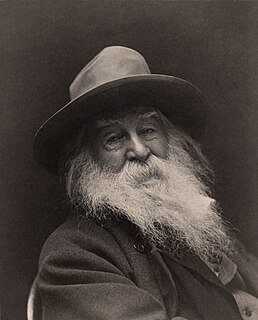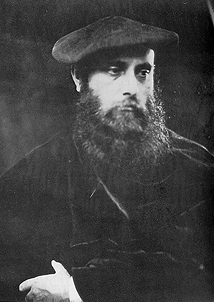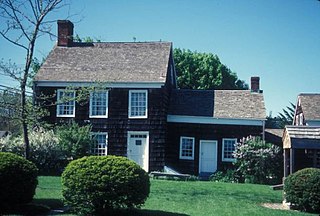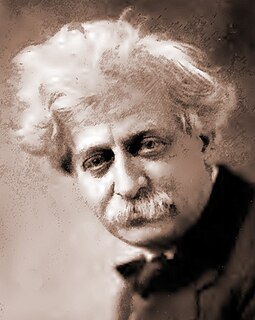Related Research Articles

Walter Whitman was an American poet, essayist and journalist. A humanist, he was a part of the transition between transcendentalism and realism, incorporating both views in his works. Whitman is among the most influential poets in the American canon, often called the father of free verse. His work was controversial in its time, particularly his 1855 poetry collection Leaves of Grass, which was described as obscene for its overt sensuality. Whitman's own life came under scrutiny for his presumed homosexuality.

"Song of Myself" is a poem by Walt Whitman (1819–1892) that is included in his work Leaves of Grass. It has been credited as "representing the core of Whitman's poetic vision."

William Michael Rossetti was an English writer and critic.

Romantic poetry is the poetry of the Romantic era, an artistic, literary, musical and intellectual movement that originated in Europe towards the end of the 18th century. It involved a reaction against prevailing Enlightenment ideas of the 18th century, and lasted approximately from 1800 to 1850.
Susan Kinsolving is an American poet whose books include The White Eyelash, Dailies & Rushes Peripheral Vision (2019) and Among Flowers.
The Academy of American Poets is a national, member-supported organization that promotes poets and the art of poetry. The nonprofit organization was incorporated in the state of New York in 1934. It fosters the readership of poetry through outreach activities such as National Poetry Month, its website Poets.org, the syndicated series Poem-a-Day, American Poets magazine, readings and events, and poetry resources for K-12 educators. In addition, it sponsors a portfolio of nine major poetry awards, of which the first was a fellowship created in 1946 to support a poet and honor "distinguished achievement," and more than 200 prizes for student poets.

"O Captain! My Captain!" is an extended metaphor poem written by Walt Whitman in 1865 about the death of U.S. president Abraham Lincoln. Well received upon publication, the poem was Whitman's first to be anthologized and the most popular during his lifetime. Together with "When Lilacs Last in the Dooryard Bloom'd", "Hush'd Be the Camps To-day", and "This Dust was Once the Man", it is one of four poems written by Whitman about the death of Lincoln.

"When Lilacs Last in the Dooryard Bloom'd" is a long poem written by American poet Walt Whitman (1819–1892) as an elegy to President Abraham Lincoln. It was written in the summer of 1865 during a period of profound national mourning in the aftermath of the president's assassination on April 14 earlier that year.

A national poet or national bard is a poet held by tradition and popular acclaim to represent the identity, beliefs and principles of a particular national culture. The national poet as culture hero is a long-standing symbol, to be distinguished from successive holders of a bureaucratically-appointed poet-laureate office. The idea and honoring of national poets emerged primarily during Romanticism, as a figure that helped consolidation of the nation states, as it provided validation of their ethno-linguistic groups.

Alberto Álvaro Ríos is a US academic and writer who is the author of ten books and chapbooks of poetry, three collections of short stories, and a memoir.

Jared Carter is an American poet and editor.

"A Noiseless Patient Spider" is a short poem by Walt Whitman. It was originally part of his poem "Whispers of Heavenly Death", written expressly for The Broadway, A London Magazine, issue 10, numbered as stanza "3." It was retitled "A Noiseless Patient Spider" and reprinted as part of a larger cluster in Passage to India (1871). The poem was later published in Whitman's poetry collection Leaves of Grass. The poem has inspired other poets and musical compositions for its theme of the individual soul in relation to the world.

The Walt Whitman Birthplace State Historic Site is a state historic site in West Hills, New York, listed on the National Register of Historic Places. The site preserves the birthplace of American poet Walt Whitman.
Beltway Poetry Quarterly is an English-language, online literary magazine based in Washington, D.C., United States.

Mohsen Emadi is a poet, translator and filmmaker. Born and raised in Iran, he left for Finland in 2009 and has resided primarily in Mexico since 2012, working as a lecturer and researcher in poetry and comparative literature for various institutes in the country.

Ned Balbo is an American poet, translator, and essayist.

Horace Logo Traubel (1858–1919) was an American essayist, poet, magazine publisher, author, and Georgist. Traubel was closely associated with the Arts and Crafts movement in the United States and published a monthly literary magazine called The Conservator from 1890 until the time of his death. Although a poet of note in his own right, Traubel is best remembered as the literary executor and biographer of his friend, poet Walt Whitman, with whom he transcribed and compiled nine volumes of daily conversations, entitled With Walt Whitman in Camden.
Carl Adamshick is an American poet. He is the author of two poetry collections, Curses and Wishes, winner of the 2010 Walt Whitman award of the Academy of American Poets and Saint Friend, published in 2014. Adamshick is the editor and publisher of Tavern Books.

The American poet Walt Whitman greatly admired Abraham Lincoln, the 16th president of the United States, and was deeply affected by his assassination, writing several poems as elegies and giving a series of lectures on Lincoln. The two never met. Shortly after Lincoln was killed in April 1865, Whitman hastily wrote the first of his Lincoln poems, "Hush'd Be the Camps To-Day". In the following months, he wrote two more: "O Captain! My Captain!" and "When Lilacs Last in the Dooryard Bloom'd". Both appeared in his collection Sequel to Drum-Taps later that year. The poems—particularly "My Captain!"—were well received and popular upon publication and, in the following years, Whitman styled himself as an interpreter of Lincoln. In 1871, his fourth poem on Lincoln, "This Dust Was Once the Man", was published, and the four were grouped together as the "President Lincoln's Burial Hymn" cluster in Passage to India. In 1881, the poems were republished in the "Memories of President Lincoln" cluster of Leaves of Grass.
References
- ↑ "Top 50 Literary Magazines and Metazines". Web Del Sol. Retrieved February 10, 2016.
- ↑ "Issue 9 Introduction". Double Room. Retrieved May 15, 2020.
- Connors, Peter (September 27, 2007). "Interview". Men of the Web Wide Poetry World (Interview). Interviewed by Didi Menendez. Retrieved June 16, 2008.